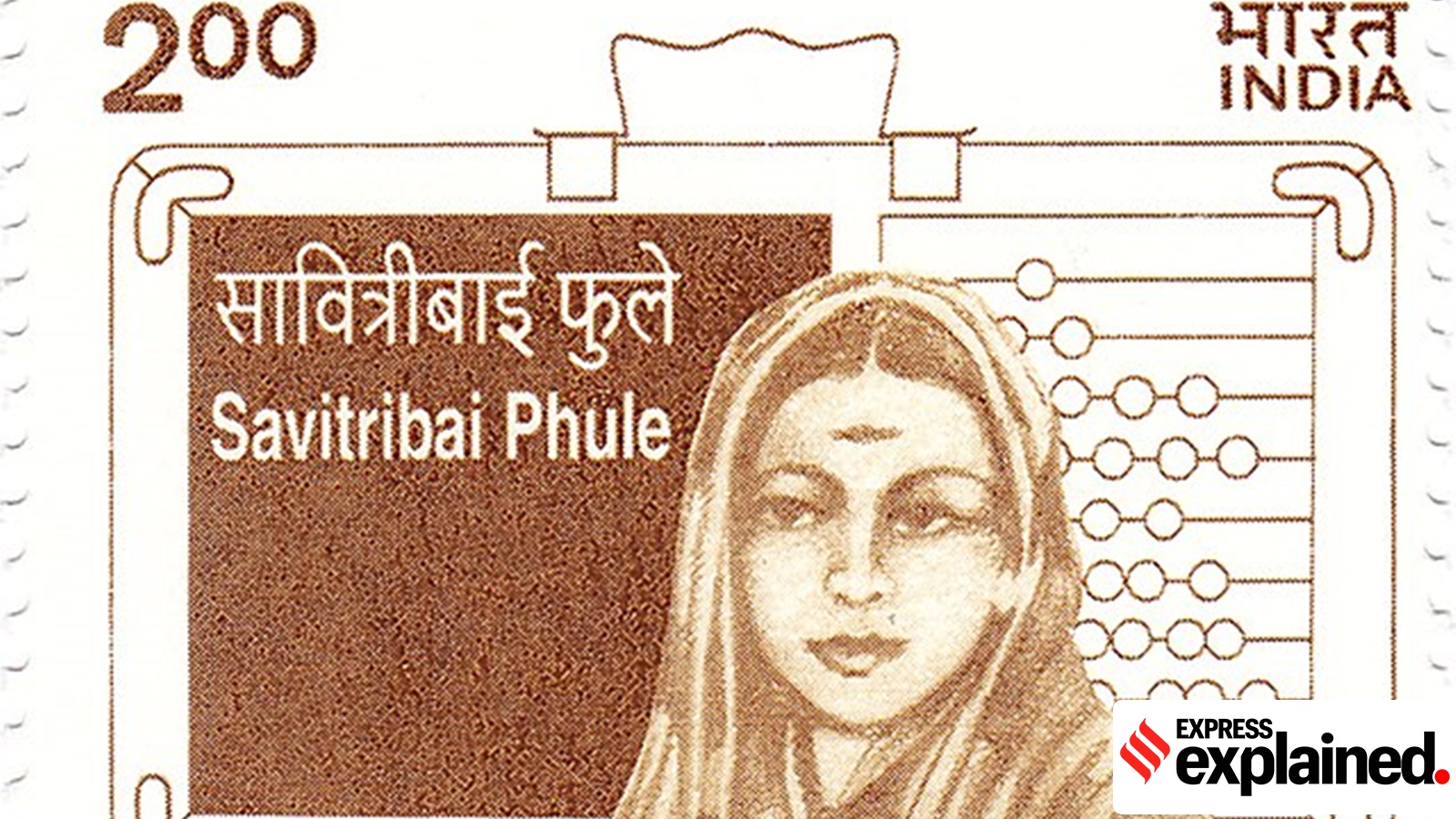She also wrote extensively on the subject. On her death anniversary, we look at one of her famous quotes, “A woman without education is like a banyan tree without roots or leaves.” Quotes from historical figures are an important part of the UPSC Civil Services Exam syllabus.

What is the full quote?
Savitribai said, “A woman without education is like a banyan tree without roots or leaves; she cannot provide for her children and stay alive herself.” While it is not clear exactly when she made this statement, Savitribai wrote on the subject of women’s education consistently and compellingly. Two books of her poems, ‘Kavya Phule’ and ‘Bavan Kashi Subodh Ratnakar’, were published in 1934 and 1982.
What does the quote mean?
The quote says that a woman without education is incomplete. Just like a Banyan tree cannot draw nutrition for itself without roots, and cannot provide shade to anyone else without leaves, a woman without education is weak and can’t contribute to her family and society adequately. A tree without roots can easily fall and die — a woman without education is similarly vulnerable, with nothing to anchor and sustain her in a hostile society.
Savitribai was writing at a time when women were deprived of education and their taking up paid employment of choice was unthinkable. This meant that a woman whose husband had died or who had no one to provide for was literally caught between life and death; her fate and that of her children was exceedingly uncertain, leaving them open to exploitation.
Savitribai, thus, wanted women to have assets and abilities of their own — roots and leaves — which could help them survive. Her use of the imagery of a Banyan tree makes her message easy to grasp for everyone.
What did Savitribai Phule do for women’s education?
Savitribai was born on January 3, 1831, in Maharashtra’s Naigaon, in the lower caste community of malis (gardeners). In keeping with the customs of the time, she was not educated, and married off at the age of 10 to Jyotirao Phule, who was then 13. It was her husband who introduced her to academic education, and Savitribai never looked back. Later, she attended a teachers’ training institute in Pune.
Story continues below this ad
The couple went on to found India’s first school for girls in Pune’s Bhidewada in 1848. For their work, they had to face severe social backlash, from a conservative society as well as from nationalists like Bal Gangadhar Tilak, who thought diluting the caste system would mean dilution of the Indian Hindu identity itself. The chorus against them was so strong that Jyotirao’s father Govindrao was forced to evict them from his house.
Savitribai and Jyotirao then moved to their associate and friend Usman Shaikh’s neighbourhood. Savitribai, alongside Usman’s sister Fatima Sheikh, began teaching girls here. Within two years, more schools were started for girls, shudras and ati-shudras in Pune.
Everyday, as Savitribai made her way to the school, she had cow dung thrown at her from the conservative sections of society, along with abuse and slurs. Undeterred, she started carrying a spare saari, and would change out of the soiled one once she reached the school.
A 2008 lecture on Savitribai Phule by Dr T Sundararaman, as part of NCERT’s Memorial Lecture Series, says, “According to the memoirs written by Balwant Sakharam Kolhe, Savitribai would say to those who troubled her, “As I do the sacred task of teaching my fellow sisters, the stones or cow dung that you throw seem like flowers to me. May God bless you!””
Story continues below this ad
“Savitribai was a woman who not only fought against the hegemonic practices of the society but also against imperialistic forces. She opened the first ever indigenous school for girls as she believed women can be truly empowered if they are educated. For her, education was the tool to bring about social reform. She firmly held the opinion that education had the power to alter and shape the social role and position of women. She inspired a generation of women with her words of fire to rise and fight against injustices,” Dr Aditi Paswan, Assistant Professor Sociology Department, Delhi University’s Lakshmibai College, told The Indian Express.
What other social reforms did she carry out?
Along with Jyotirao, Savitribai started the Balhatya Pratibandhak Griha (‘Home for the Prevention of Infanticide’) for pregnant widows and their children. The couple adopted one such child, Yashwantrao, who went on to become a doctor.
In 1873, the Phules set up the Satyashodhak Samaj (Truth-seekers’ society), a platform open to all irrespective of caste and religion, with the aim of working to ease the sufferings of Dalits and women.
When her husband died in 1890, Savitribai carried out his last rites, a role still primarily performed by men.
Story continues below this ad
Even her death came while working for the society — when the Bubonic plague broke out in Maharashtra in 1897, she contracted the disease while taking a sick child to the hospital, and breathed her last on March 10, 1897.








































